
Point-of-use shower filtration may be an effective strategy in reducing waterborne pathogens and protecting patients who underwent stem cell transplant from infection.

Point-of-use shower filtration may be an effective strategy in reducing waterborne pathogens and protecting patients who underwent stem cell transplant from infection.

Specialty nurse practitioners can help tailor pain management programs for patients with sickle cell disease and decrease hospital stay times.

The framework for establishing equity, diversity, and inclusion throughout oncology nursing already exists within the standard for health and safety, explains Aliènne Salleroli, MS, BSN, RN, OCN.

Michelle Mollica, PhD, MPH, RN, OCN, of the National Cancer Institute, discusses how childhood cancer survivors may face different challenges than adult or geriatric patients.

Ilene Galinsky, BSN, MSN, ANP-C, senior leukemia protocol research nurse practitioner, at Dana Farber Cancer Institute, discusses how treatment for patients with acute myeloid leukemia has evolved in recent years.

Courtney Arn, APRN-CNP, a nurse practitioner comments on the recent approval of pembrolizumab for patients with MSI-H/dMMR advanced endometrial carcinoma.

Caitlin Benda, MBA, MS, RD, CSO, LDN, a clinical oncology nutritionist supervisor at American Oncology Network, comments on different ways oncology nurses can assist patients in reaching their overall caloric intake.

Hussein A. Tawbi, MD, PhD, principal investigator of the phase 2/3 RELATIVITY-046 trial, highlights the importance of relatlimab/nivolumab’s recent FDA approval in melanoma.

Charles E. Geyer, MD, FACP, discusses dosing strategies and adverse event management with olaparib.

As prognoses continue to improve, concerns about treatment-associated fertility risks are becoming more prevalent and are often a topic of discussion between patients and their nurses or nurse practitioners.

Sheila L. Ridner, PhD, RN, FAAN, provides an overview of bioimpedance spectroscopy and how the simple design allows for standardized subclinical lymphedema surveillance in breast cancer survivors.

Lindsay Kroener, MD, offers an overview of current fertility preservation options for patients about to undergo cancer therapy.

Ahead of his presentation at the 39th Annual Miami Breast Cancer Conference, Charles L. Loprinzi, MD, highlights some non-estrogenic approaches to hot flash management for patients with breast cancer.
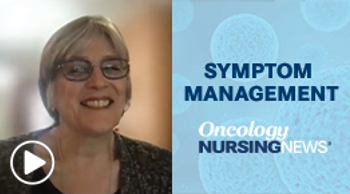
Heidi Donovan, PhD, RN, comments on principles of symptom management that she believes need to be better implemented in clinical practice—particularly for patients with ovarian cancer.

Janice Post-White, PhD, RN, FAAN, an oncology nurse and caregiver, discusses how she handled the guilt she felt following her son’s leukemia diagnosis.

A licensed clinical health psychologist with Allegheny Health Network discusses fully integrated behavioral health programs and how their design alleviates potential barriers to care that patients may experience.

Tebentafusp, the first FDA-approved treatment option for patients with unresectable or metastatic uveal melanoma, may cause mild cytokine release syndrome, an expert explains.

An expert discusses the consequences of cisplatin-induced hearing loss and ongoing research efforts to eliminate this associated risk for children receiving the treatment.

Janice Post-White, PhD, RN, FAAN, an oncology nurse and caregiver, comments on how the act of writing allowed her to process previously suppressed emotions.

Janelle Wagner, RN, OCN, Senior Manager of Patient Navigation Program for Community Sites, highlights some challenges commonly associated with nurse navigation, and how nurses can overcome them.
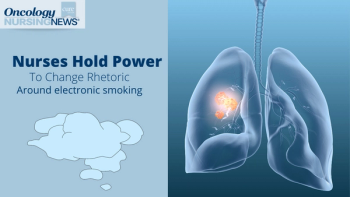
Although the long-term effects of e-smoking are still unknown, the percentage of young people developing nicotine dependency is increasing, a Cancer Treatment Centers of America expert explains.

LAG-3 represents a potentially relevant immune checkpoint pathway in melanoma treatment.

An expert from Seattle Cancer Care Alliance highlights key skills in nurse navigation.

Dr. Hussein Tawbi, MD, PhD, explains the rationale behind the RELATIVITY-047 trial in melanoma and how the LAG-3 findings could further revolutionize immunotherapy.

An expert from The University of Texas MD Anderson Cancer Center offers advice on the best diet to enrich a patient’s microbiome and consequent immunotherapy response.

An expert from The University of Texas MD Anderson Cancer Center highlights findings demonstrating the impact that diet and probiotics have in immunotherapy responses.

Nausea and upper GI discomfort are frequently linked with use of the oral SERD.
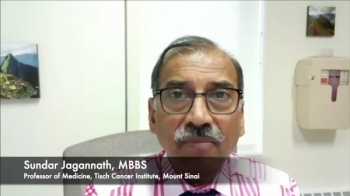
An expert from the Tisch Cancer Institute highlights the importance of medication adherence, nausea management, and proper hydration for patients being treated with selinexor for relapsed or refractory multiple myeloma.
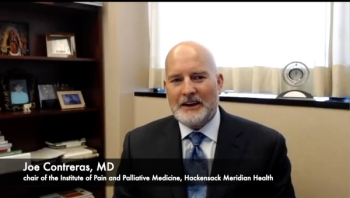
The chair of the Institute of Pain and Palliative Care explains how the holistic approach of palliative care makes it a unique treatment modality.
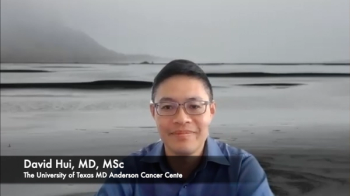
David Hui, MD, MSc, from The University of Texas MD Anderson Cancer Center, discusses findings indicating that patients with agitated delirium may be under-sedated, in accordance with their personalized sedation goal.